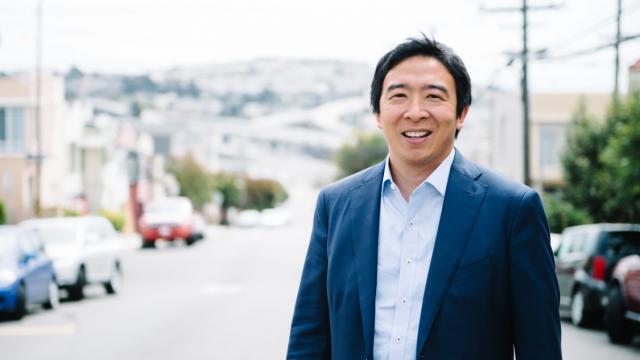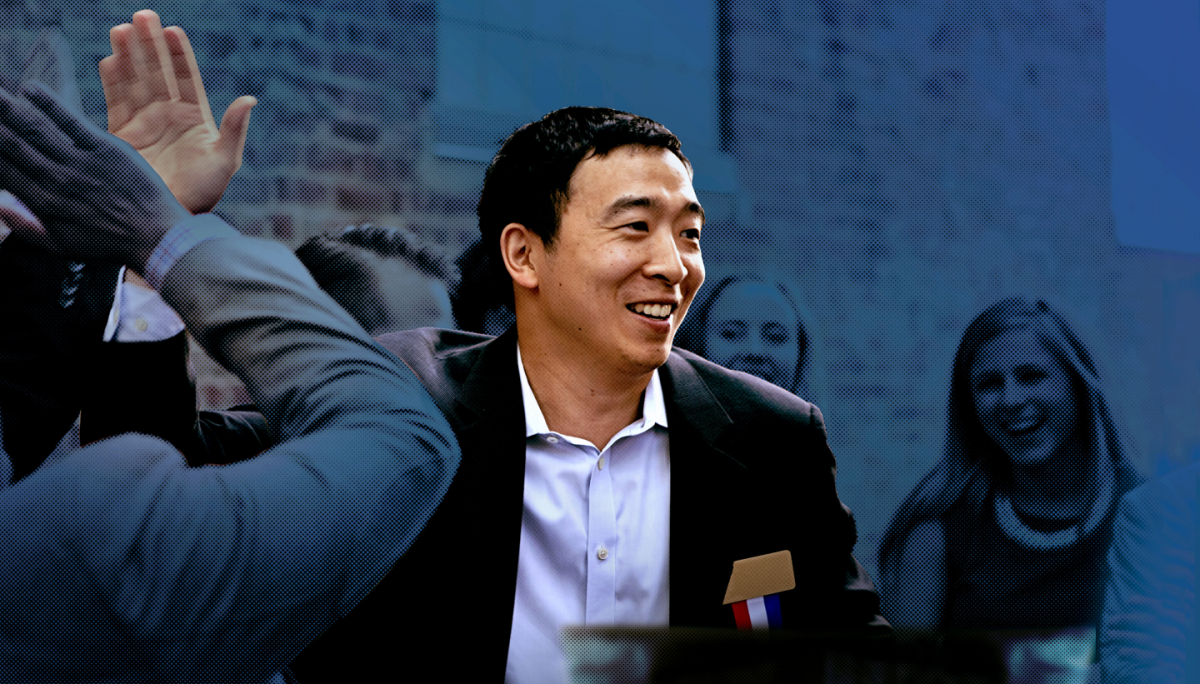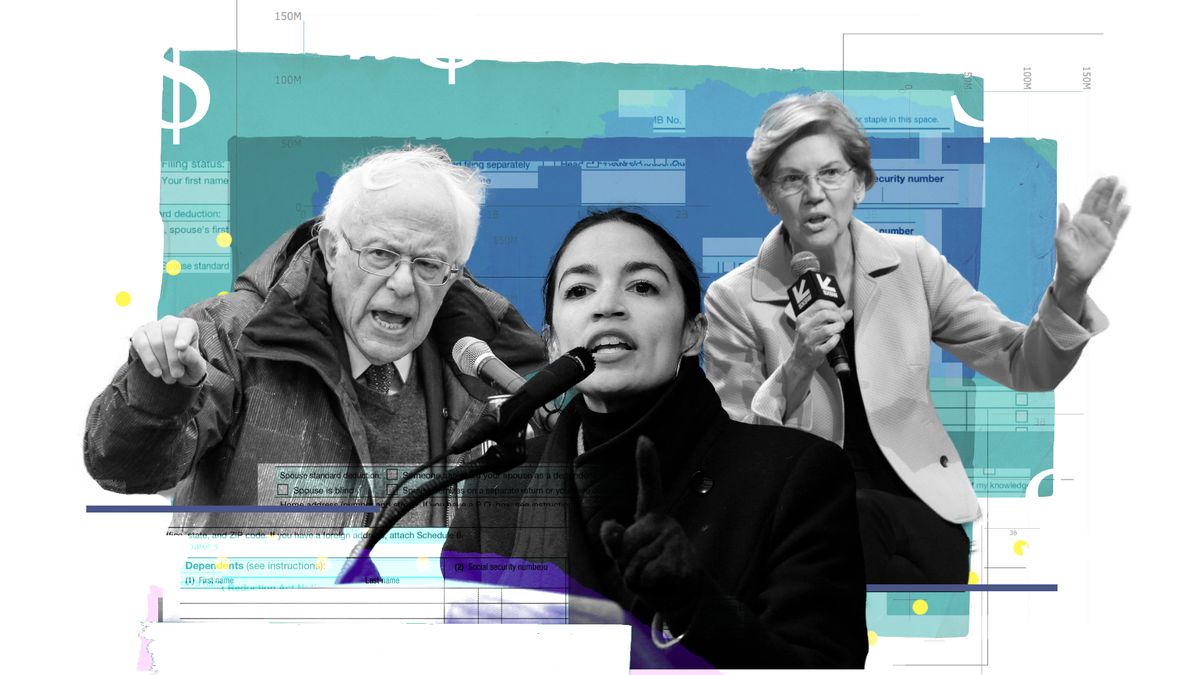
One takeaway from the Trump era is that voters should be wary of political candidates whose chief asset is star quality, especially the malignant star quality of a minor-league mob boss. By now it ought to be obvious that celebrity cachet alone is a good reason to suspect the seriousness of media-anointed rock stars who are long on name recognition and hipster gimmickry but short on policy specifics.
You can’t say that about Andrew Yang, who enters the Democratic race with little name recognition but three big ideas: a universal basic income (UBI), Medicare for all, and “human-centered capitalism.” Call them utopian if you like, but they do not appear to have sprung from some cynical focus group or from the incontinent mind of a populist know-nothing.
Mr. Yang has actually accomplished something in life – like starting a successful nonprofit – that did not involve self-serving, high-risk bets with other people’s money. He has also posed some important questions and proposed some interesting answers, partly through his recently published book, “The War on Normal People.”
UBI, Mr. Yang’s flagship proposal, is simple in concept. As automation renders human labor increasingly superfluous, something must be done to provide the unemployed with income. Under Mr. Yang’s proposal, the government would provide every U.S. citizen aged 18 to 64 with an unconditional “freedom dividend” of $1,000 a month.
This would have two big consequences. First, it would boost what economists call aggregate demand – total spending, mostly by middle-income consumers, that is the heart of the economy. One way to think of gross domestic product is as the total dollar value of what people consume in a year, and in the U.S. two-thirds of that is by typical households.
The UBI Mr. Yang proposes would enlarge the economy by a cumulative 12.6 percent over currently predicted trends in the first eight years and boost the labor force by up to 4.7 million people, according to a Roosevelt Institute study he cites.
Second, UBI should help alleviate poverty and promote economic equality, to the extent that it constrains the giant upward transfer of wealth that the economy and tax code are rigged to deliver.
Mr. Yang says his UBI would cost $1.3 trillion a year on top of the existing 126 federal safety-net programs, most of which would be incorporated into the plan. People would choose between current benefits and the UBI, an approach Mr. Yang says would reduce the net cost of the plan. He would pay for it partly with a 10 percent consumption tax, which “would generate income from the people and businesses that benefit from society the most,” he writes in “Normal People.”
The challenge, he writes, is “to extract more of the value from automation in order to pay for public goods and support displaced workers.”
At first glance, a plan of that scale would sharply expand the money supply and be highly inflationary. But Mr. Yang says that since it would be funded largely by a consumption tax it would have minimal impact on money supply or prices. He notes that the federal government’s $4 trillion “quantitative easing” program – a technical term for “printing money” – has not been inflationary. Indeed most economists worry that inflation has been too low over the past 10 years. The UBI payout would nonetheless be indexed to inflation.
To be sure, UBI is not a new concept. Everyone from Thomas Paine to Elon Musk has endorsed it in one form or another. It’s actually policy in some places, like Alaska. Among other 2020 Democratic candidates, New Jersey Sen. Cory Booker is proposing “baby bonds,”which would fund savings accounts for people up to age 18.
And there are reasonable questions about whether UBI is a good idea. Would it, for instance, produce more indolence and dependence than productivity and self-motivation? (UBI supporters say the data suggest it wouldn’t.) Would it simply induce employers to cut pay for those who do work? Will it attract more immigrants than we can handle?
Maybe the whole premise of UBI is flawed, and automation won’t necessarily generate the surplus labor its proponents say it will. History is littered with the projections of broad economic changes that never happened – Malthusian overpopulation, peak oil and so forth. The current unemployment rate, 3.9 percent, suggests to some that surplus labor is not a problem even in an economy that is already quickly automating, even if you consider the falling labor-participation rate. Modes of production change; the change generates new types of employment. If it didn’t, we’d still be hunting and gathering.
Still, it’s worth remembering that for-profit companies do not exist to employ people; they exist to benefit their owners. If they could profit by employing no one, they would. What’s more, say Mr. Yang and others, AI-related automation is fundamentally different from earlier industrial advances because it’s overtaking whole economies, not just particular industries.
We already know how technology-driven efficiencies can marginalize labor. As historian Yuval Noah Harari noted in a recent Sam Harris podcast, national militaries once reliant on mass mobilization of ordinary people now require only small armies of highly trained professionals, thanks partly to technology.
“If the same thing happens in the civilian economy,” Mr. Harari says, “then we might see a similar split … where you have a relatively small, capable elite relying on very sophisticated technology, and most people – just as they are today militarily irrelevant – they could become politically irrelevant.”
Whether a UBI would work as advertized or is even politically possible is a question that a national conversation will help resolve. That’s what campaigns are for. For now, Mr. Yang has already helped elevate the level of national discourse by making his campaign one about ideas, not personalities and resentment stoking.
He also shows, inadvertently, how far Donald Trump has lowered the bar of public expectations. Reading, thinking and good faith should normally be minimal requirements for a presidential candidate, but not when the incumbent is a white-collar criminal and pathological liar who has probably never read a book, let alone written one.
In a primary fight, Yang versus an Elizabeth Warren might be a hard choice. But Yang versus Trump is about as easy as it gets.















